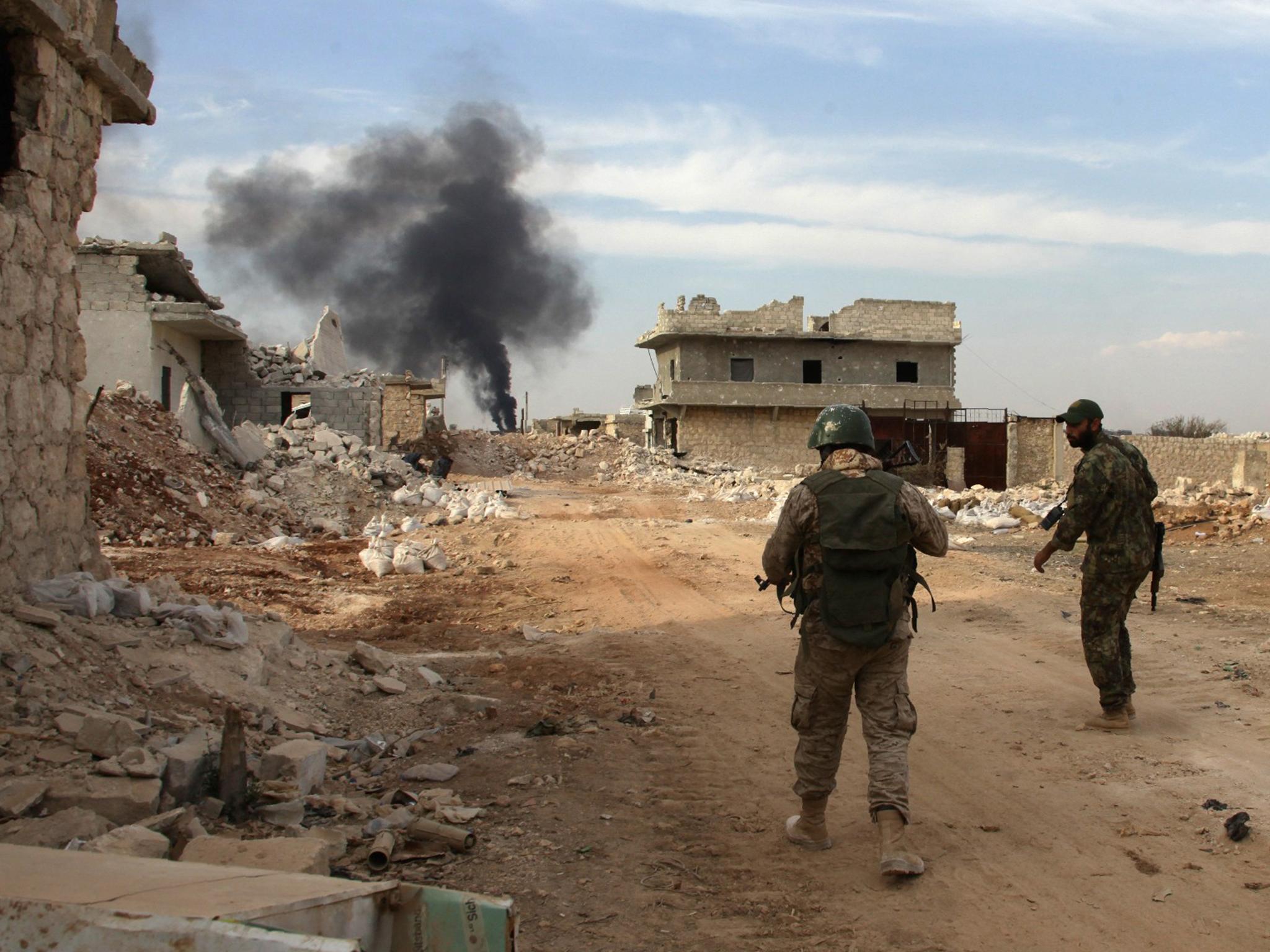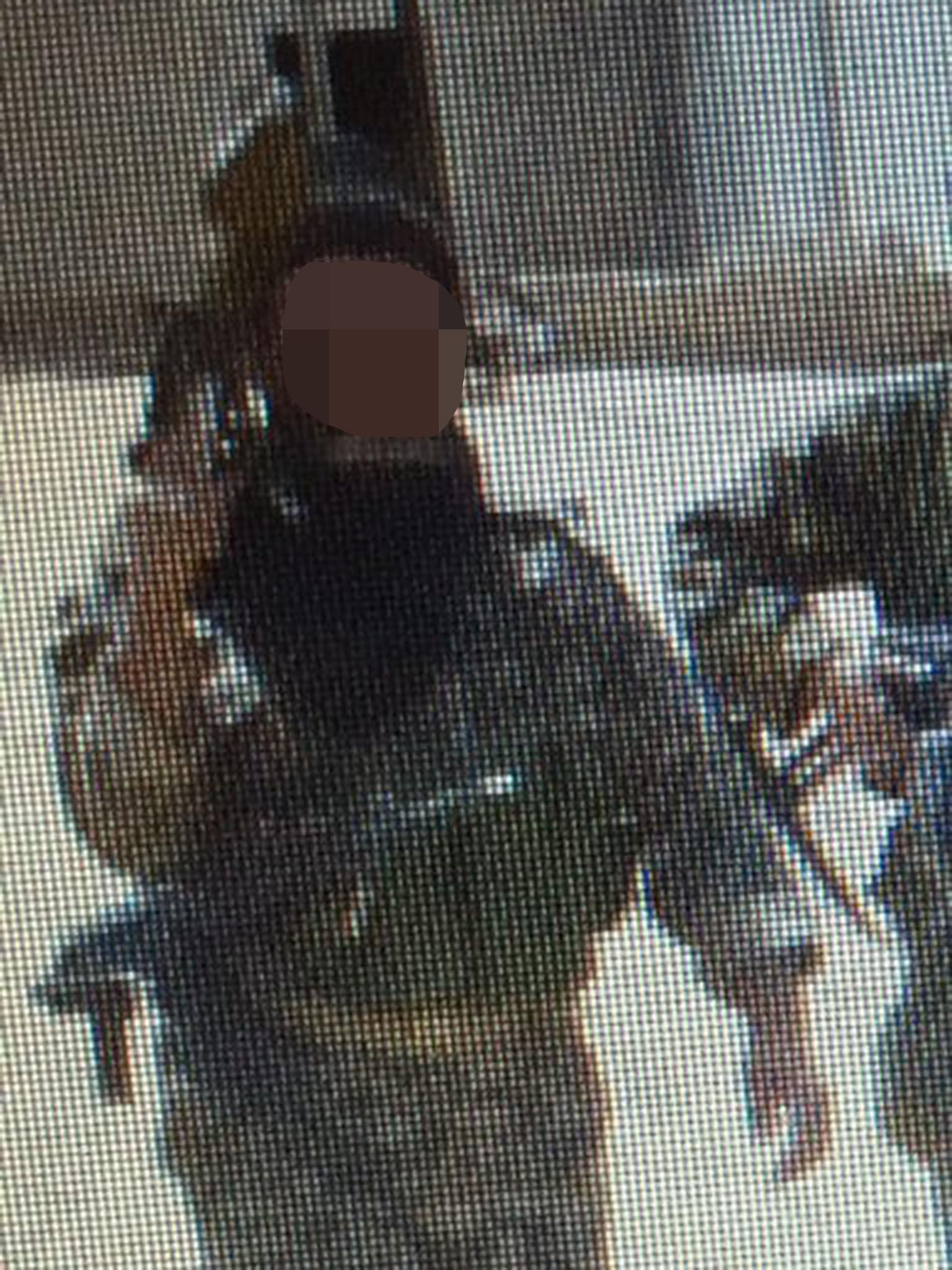On the front line of Iran's shadow war in Syria
Exclusive: A fighter who was critically injured in an explosion in the Syrian town of Khan Touman explains the reasons for him joining the Iranian effort in Syria – one of thousands to have been deployed across Syria and Iraq

Your support helps us to tell the story
From reproductive rights to climate change to Big Tech, The Independent is on the ground when the story is developing. Whether it's investigating the financials of Elon Musk's pro-Trump PAC or producing our latest documentary, 'The A Word', which shines a light on the American women fighting for reproductive rights, we know how important it is to parse out the facts from the messaging.
At such a critical moment in US history, we need reporters on the ground. Your donation allows us to keep sending journalists to speak to both sides of the story.
The Independent is trusted by Americans across the entire political spectrum. And unlike many other quality news outlets, we choose not to lock Americans out of our reporting and analysis with paywalls. We believe quality journalism should be available to everyone, paid for by those who can afford it.
Your support makes all the difference.The Isis attack came as Abdullah Zare and his comrades were preparing for the defence of Khan Touman. Round after round of mortar fire pounded the town. People screamed as they fled, some fell injured, some dead. As the Basij fighter shot back at the enemy through the smoke and dust, a shattering explosion sent Zare flying through the air.
He had been hit by spraying shrapnel, leaving him deafened and covered in blood. He crawled using his left arm, the only part of his body he could move, for a hundred long metres until his fellow Iranians rushed forward and pulled him behind the safety of a wall.
“I could hear bullets in the air as I was crawling, some were landing near me, I could only go very slowly, I don’t know why I didn’t get hit,” he reflects. “Maybe I was very lucky, maybe Allah protected me. I am very glad I am alive.”
The injury had taken place during Zare’s second journey to Syria’s civil war. He was one among the contingents of thousands sent by Iran in a mission kept very much in the shadows, but one which has played a key role in ensuring the continuing survival of Bashar al-Assad’s regime through years of strife.
Iranian fighters are also active in the conflict across the border in Iraq. This week they were with Shia Iraqi forces which freed the final remaining Yazidi villages occupied by Isis. One of the last to fall was Kocho, the place of one of the most notorious atrocities of the caliphate in which male residents were lined up and executed and the females taken off to be sold, some as sex slaves.
Yazidi volunteers and Baghdad’s regular troops also took part in the operation. But the victory was announced by Hadi al-Ameri, commander of the Badr Brigade, a powerful Iraqi group which had fought against American and British forces during the occupation. Ameri himself has spent long periods of time in Iran and is a protégé of General Qassem Soleimani, the hugely influential chief of the Quds force of the Iranian Revolutionary Guards. With the successful offensive the Iranian and Iraqi Shia militias are now at the Syrian border from the Iraq side while in Syria, the Iranians and the Assad military have established a route from Damascus to their Hezbollah allies in Lebanon.

Reflecting the twists and turns of the region’s geopolitics, American and British warplanes are now providing air cover for the Shia militias, with Iranians in the rank, in the campaign against Isis in Iraq. Meanwhile Donald Trump attacked Iran during his recent visit to Riyadh for “exporting terrorism” in the region while signing a $110bn (£85bn) arms deal with Saudi Arabia to counter the supposed Shia threat.
Along with Russian air power and special forces, Hezbollah and Iranian fighters have turned the tide of the conflict in Syria. But for Tehran this has come at a heavy cost, with more than a thousand killed in the last four years. Very little of the operations is publicised in Iran where there is growing questioning of the war, especially among the young people who recently voted the reformist Hassan Rouhani to a landslide victory in the country’s recent presidential election.
Zare is very fortunate not to be among the Iranian dead in Syria. He received severe injuries to his legs and spine, damage to his liver and lung at Khan Touman. He could not be moved for hours because of the intensity of the combat and there were no ambulances available when an opportunity came during a lull in the fighting. A bread van used to move him to a hospital to the nearest city, Aleppo, had its roof sheared off in a blast during the journey.
“I could have died when I was first hit and then I could have died in that van and then in the hospital,” Zare, a soft-spoken, bearded, burley man says back at his home in Tehran. “The conditions were really bad because there were so many casualties. Daesh [Isis] and the other terrorists just used to fire indiscriminately into crowded areas. That’s the reason so many people were wounded and killed.”
Zare spent 12 days in a hospital in Aleppo before he was flown to Tehran for surgery. He has had a half-dozen operations since then and has to take 21 different tablets every day. He pays for most of the medication himself, he says, because he does not want to be accused of taking public money. It is a sensitive issue which again receives little publicity.
“There are people, even here in Iran, who say that we only went to Syria for money. That is very false, we went there because we believed it was the right thing to do, we were there for Iran,” Zare insists, angrily.
Basij fighters like him say that as volunteers they either take no money at all or a subsistence amount from the state for going to Syria. There are, however, other units operating in Syria, like the Fatemiyoun, drawn from the international Shia diaspora in Iran, who get paid between $500 and $750 a month. There is also the added attraction for those like Afghan refugees – who make up a large proportion of this force – of getting Iranian nationality for themselves and their families.
Zare volunteered to return to Syria. But, unsurprisingly considering his state of health, he was turned down. What was the motivation for him to leave his wife and young son to go and risk his life in the first place? “Don’t forget as a country we are used to war. I grew up when the war between Iran and Iraq was going on, everyone felt very patriotic, I knew I wanted to fight for my country if I was needed,” he says.
“We also believe in the words of Ayatollah Khamenei who told us about the terrible things which were going on in Syria, how the terrorists and takfiris were attacking our religion and killing innocent people, we needed to stop them.”
Iran’s Supreme Leader, Grand Ayatollah Khamenei, has declared that it was imperative that Iran confronted its enemies in Syria away from its own borders. “Had the ill-wishers and plotters not been prevented from their evil deeds in Syria we would have to prevent them in the Iranian provinces of Tehran, Fars, Khorasan and Isfahan, so it is better we do it there,” he stated in one of his latest pronouncements.“The door for martyrdom, which was closed by the end of the war with Iraq, is now open in Syria.”
Zare’s background made him highly receptive to the message. He had joined the Basij at the age of 10 and grown up with its religious and political doctrine. The membership of the paramilitary, which is affiliated to the Revolutionary Guards, is constantly reminded of its duty to defend the true faith and Iran’s Islamic Revolution from its enemies.
The relentless sectarian cultural vandalism carried out by Isis, the destruction of Shia shrines and mosques, has also been a motivation for Iranians volunteering for Syria. It was one of the reasons why Zare decided to go. But the savagery he witnessed once there quickly reinforced his view, he says, that he had made the right decision.
“When you find that a mother has been forced to watch her baby being cut to bits before being killed herself, when you know old people and young children have been beheaded then you realise that it is right to fight against these barbarous people. Any doubts I could have had went after that,” he says.
“But Daesh did not suddenly come from nowhere. There are countries like Saudi Arabia which created them. We are also convinced that the Americans and the Israelis made Daesh possible. Daesh will try to harm us, harm other countries, even in Europe, as we have seen. We need to protect the people in Syria, but we must protect ourselves, protect our families.”
Zare’s son, 12-year-old Mohammed, sits listening to his father at the family home, a meticulously neat apartment filled with bric-a-brac as well as a classic motorcycle and a classic scooter, examples of Abdullah’s lifelong hobby interrupted by war.
Mohammed had wondered where his father had disappeared to during the first deployment to Syria, but found out about the second visit last year. Then, he says, something strange happened. “I had a bad dream the night before my father was injured. I dreamt that he had been killed,” he recalls, in a hesitant voice. “I was worried all of the next day and then, a few days later, we heard that he had been hurt.”
Mohammed is very proud of his father. He would have been very sad if he had been killed, but would have had the satisfaction of knowing that he had died a martyr, he points out. He himself joined the youth section of the Basij at the age of six and is devoted to the organisation.
Mohammed can hardly wait to go and fight in Syria. But a lot of young people interviewed during the election campaign spoke of not wanting to risk their lives in a foreign war just when Iran was opening up to the outside world after so many years of isolation. Is he sure about going?
“Yes, it is my duty. Others don’t have to go, only volunteers need to go,” says Mohammed. His father nods: “Each person must decide for himself and Mohammed will have to make up his own mind when he is old enough to go, I cannot tell him not to go having gone their myself. Daesh may be defeated but they will come back in another form our enemies are not going to disappear. The puppet masters will make sure of that.”
Join our commenting forum
Join thought-provoking conversations, follow other Independent readers and see their replies
Comments